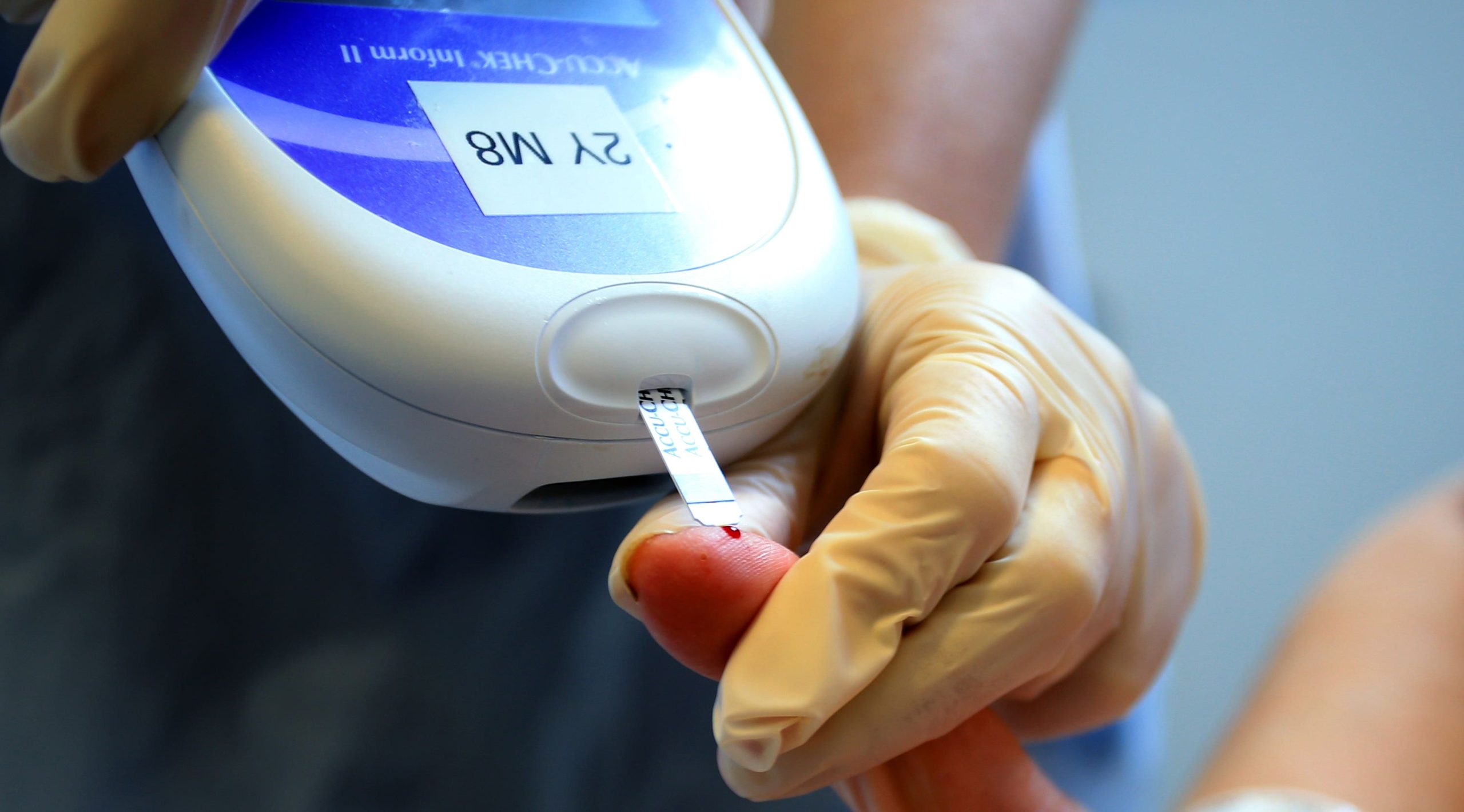‘Quarter of a million’ middle-aged people have undiagnosed diabetes – 6 red flag signs
Diabetes UK is urging people to get symptoms checked out
As you get older, it can be quite common to feel more tired or go to the toilet more often, and most people with such symptoms wouldn’t rush to the GP.
But, as well as being something that often happens as you get older, tiredness and needing to urinate more are two of the most common signs of diabetes.
And as new estimates suggest around 250,000 middle-aged adults have type 2 diabetes and are unaware of it – and there are a total of around 850,000 undiagnosed people of all ages in the UK, according to Diabetes UK – it’s clear these symptoms need checking out.
“About 90% of people with diabetes have type 2, and spotting the warning signs can be difficult as they’re often subtle, and many people don’t notice any symptoms at all,” warns Esther Walden, senior clinical advisor at Diabetes UK (diabetes.org.uk).
Little did I know that being so thirsty and going to the toilet frequently was diabetes. My parents knew I wasn’t right so took me to see a doctor.
20 years since diagnosis…it’s still here, but it’s not stopping me. If you have these symptoms below, please get checked out. 💙 https://t.co/1xuL4s9n4K
— Hannah McCook (@HannahMcCook) November 14, 2022
“People put their symptoms down to other things because they’re not very specific – people think they’re getting up in the night to go for a wee because they’re just getting a bit older, for example. The symptoms are difficult to notice in busy lives – and this means some people can live for up to 10 years with the condition before being diagnosed.”
Diabetes UK says the disease occurs when the body doesn’t produce any insulin (as in type 1), or it doesn’t produce enough/it’s ineffective (type 2). Insulin, which is a hormone produced in the pancreas, helps glucose enter cells to give us energy, and without enough of it, or if it’s not working properly, glucose levels in the blood can become too high.
This can cause chronic issues over a long period of time, such as serious damage to blood vessels, which can lead to nerve damage and loss of feeling in parts of the body, and further complications including heart, eye and kidney problems.
Diabetes UK says type 2 diabetes can be easy to miss as it can develop slowly. So what are the red flag symptoms?
Diabetes symptoms can happen at any age & in the case of type 1, can appear over a matter of hours, or days.
Watch & share this video showing the signs of type 1 or 2 to look out for – it could help someone like Summer in #Corrie get the right treatment more quickly @itvcorrie pic.twitter.com/i8u7P9j3m3
— Diabetes UK (@DiabetesUK) June 21, 2021
1. Urinating more
Weeing a lot, especially at night, can be a sign of diabetes, and Walden says: “The sugar builds up in the blood rather than getting into the cells, and the kidneys work overtime to get rid of the excess sugar in the blood, so you go for a wee more often.
“It doesn’t happen more at night, but people notice it more at night because they might not usually get up to go for a wee. And it’s not like having a urine infection where you can only squeeze out a little dribble, you’ll need to go for a full wee.”
2. Feeling thirsty
Walden says that when there’s too much sugar in the blood, cells give the blood more water to try to dilute the sugar in it, which leaves the cells dehydrated. Because the cells are dehydrated, they send a chemical signal telling your body you’re thirsty, so people drink much more.”
3. Tiredness
Feeling more tired than usual is often a sign of diabetes, and Walden explains: “When you have type 2 diabetes, your body can’t get enough glucose into your cells for energy, so a common symptom is feeling very tired.
View this post on Instagram
“It’s overwhelming tiredness – people report things like falling asleep in the afternoon when they wouldn’t normally, for example.”
4. Losing weight
This symptom is about losing weight without trying to, and Waldon explains: “We normally store excess sugar as fat, and the body’s working harder because it’s not got the sugar into the cells, and it still needs energy, so it accesses energy by breaking down fat cells, which means people lose weight.”
5. Genital itching or thrush
Genital itching can occur when someone has type 2 diabetes because sugar is being passed in urine, explains Walden. “This creates a really nice environment for bacteria to grow, so we’re more prone to infections, particularly urine infections. Bacteria like the sugar – we all need energy!”
6. Wounds taking longer to heal
The reason cuts and wounds take longer to heal is similar to the cause of genital itching, says Walden. “When you’ve got a wound, you need extra energy to deal with the problem, but because the body lacks energy, nutrients aren’t getting to the right areas as well as they should, and the environment is ripe for bacteria because they’re feeding well and multiplying.”
Walden stresses that if you have any of these symptoms, you should contact your GP urgently.
The Press Association
Latest posts by The Press Association (see all)
- The Princess of Wales pays tribute to the late Queen in burgundy ensemble for Qatar state visit - December 3, 2024
- Give your garden wildlife some home-made Christmas treats - December 2, 2024
- What is surgery prehabilitation and why is it important? As Joe Wicks launches get ‘fit for surgery’ videos for elderly - November 30, 2024
- How to manage your arthritis in the cold weather - November 30, 2024
- How to help a child through grief - November 28, 2024





















